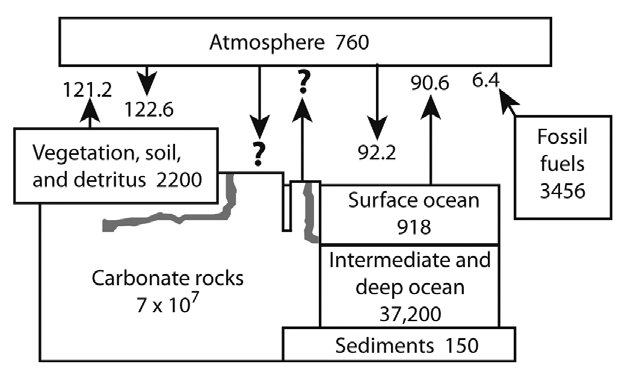Do carbonate karst terrains affect the global carbon cycle?
DOI:
https://doi.org/10.3986/ac.v42i2-3.660Keywords:
Global carbon cycle, carbonate terrains, organic carbon fixation, remineralization, carbonate mineral dissolution, carbonate mineral precipitationAbstract
Carbonate minerals comprise the largest reservoir of carbon in the earth’s lithosphere, but they are generally assumed to have no net impact on the global carbon cycle if rapid dissolution and precipitation reactions represent equal sources and sinks of atmospheric carbon. Observations of both terrestrial and marine carbonate systems indicate that carbonate minerals may simultaneously dissolve and precipitate within different portions of individual hydrologic systems. In all cases reported here, the dissolution and precipitation reactions are related to primary production, which fixes atmospheric CO2 as organic carbon, and the subsequent remineralization in watersheds of the organic carbon to dissolved CO2. Deposition of carbonate minerals in the ocean represents a flux of CO2 to the atmosphere. The dissolution of oceanic carbonate minerals can act either as a sink for atmospheric CO2 if dissolved by carbonic acid, or as a source of CO2 if dissolved through sulfide oxidation at the freshwater-saltwater boundary. Since dissolution and precipitation of carbonate minerals depend on ecological processes, changes in these processes due to shifts in rainfall patterns, earth surface temperatures, and sea level should also alter the potential magnitudes of sources and sinks for atmospheric CO2 from carbonate terrains, providing feedbacks to the global carbon cycle that differ from modern feedbacks.
Keywords: Global carbon cycle, carbonate terrains, organic carbon fixation, remineralization, carbonate mineral dissolution, carbonate mineral precipitation.
Downloads

Downloads
Published
How to Cite
Issue
Section
License
Authors guarantee that the work is their own original creation and does not infringe any statutory or common-law copyright or any proprietary right of any third party. In case of claims by third parties, authors commit their self to defend the interests of the publisher, and shall cover any potential costs.
More in: Submission chapter




